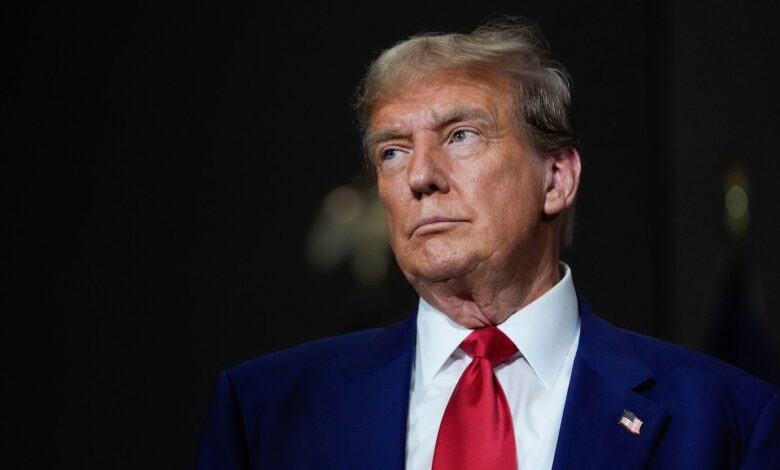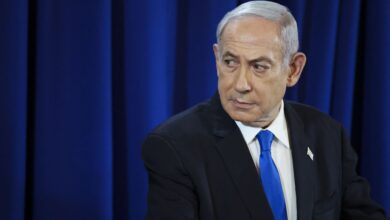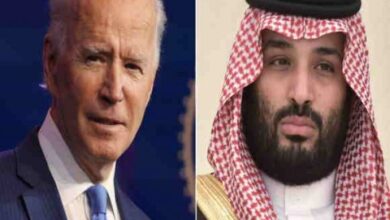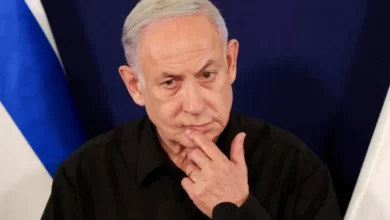
By Frida Ghitis, “CNN” :
The streets in Washington, D.C., were festooned with flags of Japan in recent days, as the United States bestowed one of its rarest of honors, a lavish state dinner, on visiting Japanese Prime Minister Fumio Kishida, a chance to reaffirm and strengthen bonds between two key allies.
Meanwhile, at Mar-a-Lago, a parallel gathering of future-focused faux diplomacy was unfolding, with British Foreign Minister David Cameron making the trek to discuss US foreign policy with former President Donald Trump.
Cameron’s visit – which he defended as “entirely proper” – was only the most visible element of a mad rush by US allies to prepare for what could be the return of the most disruptive US president in memory — possibly ever.
As CNN reported, European diplomats are engaged in a frantic effort to make connections with Trump-linked figures, trying to understand what a possible Trump victory in November might bring.
It’s not just Europe. Across the globe, with the world’s most powerful country on the cusp of an election that could bring a sharp turn in US foreign policy, nations are trying to prepare for what might lie ahead.
Trump’s strong poll numbers have caught many Europeans by surprise. Now, they’re urgently working on two fronts: seeking to Trump-proof their foreign policy and defense, and hoping to minimize the potential negative impact of a Trump victory.
To fortify their defenses and boost the chances that their top foreign policy priority – preventing Russia from defeating Ukraine – doesn’t turn to ashes if Putin-friendly Trump wins, both NATO and the European Union are trying to come up with massive funding mechanisms to help Ukraine, even as Kyiv’s ammunition stocks have already fallen far behind Moscow’s. The EU – along with the current US administration – is considering a plan to give Ukraine access to some $300 billion in frozen Russian assets, and NATO is mulling a $100 billion fund to support Ukraine.
Seeking to influence the current – and perhaps future Trump-centered Republican policy, NATO chief Jens Stoltenberg recently spoke to Trump allies and to the traditionally conservative but now pro-Trump Heritage Foundation, highlighting the strength of NATO.
Less than two weeks later, Trump declared that if elected president again, he would “encourage” Russia to “do whatever the hell they want” to any NATO country that doesn’t spend enough on defense. The statement reportedly turbocharged European efforts to prepare for his return.
Ukraine is not the only issue, of course. Europeans are worried about the survival of NATO and of the US commitment to the defense of its allies, and they fear that the deep ideological, economic, diplomatic and security bonds that have underpinned relations between the US and Europe could be in play. The very concept of the “West” looks fragile. Many worry that a second Trump term would prove so disruptive to democratic ideals that it would embolden far-right authoritarian politicians across the globe.
For authoritarian leaders, a new Trump administration is a welcome prospect. Hungarian Prime Minister Viktor Orban, whose sharp erosion of democracy at home has sparked clashes with the EU, also visited Mar-a-Lago, where Trump praised him as a “fantastic,” “noncontroversial figure.” He explained his admiration by outlining the contours of authoritarianism, declaring that when Orban said, “‘This is the way it’s going to be,’ that’s the end of it.”
The global courtship of the former – and perhaps future – president complicates President Joe Biden’s own foreign policy tasks. With other countries seeking to ingratiate themselves with Trump, it’s quite conceivable that some are already toning down their support for Biden’s own policies at a pivotal moment in global history, with two dangerous wars – in the Middle East and Europe – playing out.
Making matters more unusual – and far more unethical – Trump has effectively launched his own shadow foreign policy, actively undermining Biden’s – America’s – policy. Not only is the former president leveraging his control of the Republican Party to block US aid to Ukraine ‑ Trump is interfering in US foreign policy elsewhere.
Richard Grenell, a former ambassador and top intelligence official under Trump, is now traveling the world, holding meetings with far-right leaders, offering them Trump’s support. In case anyone thought Grenell is acting on his own, which would be troubling enough, Trump has called him “my envoy.”
When far-right forces tried to block the inauguration of a democratically elected anti-corruption president in Guatemala, triggering sharp international criticism, including from Washington, Grennell flew to Guatemala and met with the hardliners trying to prevent the inauguration of the new president, and gave them resounding verbal support. Grennell defended the would-be coup plotters, who had seized the ballot boxes trying to overturn the vote. US officials say Grenell is harming US interests as he tries to advance Trump’s.
Interfering in US foreign policy is bad enough, but there’s also an unseemly financial angle.
When news emerged that Trump’s son-in-law and former Trump administration official Jared Kushner was negotiating a massive real estate deal with Serbia and that Grenell was part of his team, Serbian President Aleksandar Vucic denied it was part of a plan to ingratiate himself with Trump in case he returns to power, as the opposition had claimed.
Whatever was behind the deal, the very fact that the opposition viewed it in that light underscores the perceived urgency of sidling up to Trump.
The last time Trump won, the entire world was caught by surprise. Just days after the election, Japan’s late Prime Minister Shinzo Abe rushed to New York, becoming the first foreign leader to meet in person with President-elect Trump. The meeting at Trump Tower, with daughter Ivanka Trump — at the time a private businesswoman — incomprehensibly in attendance, was one of the indelible images of the time.
This time, no one wants to be caught unprepared. But in their efforts to lay the groundwork for what most US allies view as the prospect of an unwelcome change, beginning with Trump’s distaste for multilateral alliances, those countries risk undercutting a sitting president who has rebuilt the very alliances they fear losing, and finding themselves unprepared for what could be another electoral surprise.
I recently heard a respected Mideast analyst declare as matter of fact that Biden is a one-term president, a view that may be shared in some quarters but is very far from assured.





